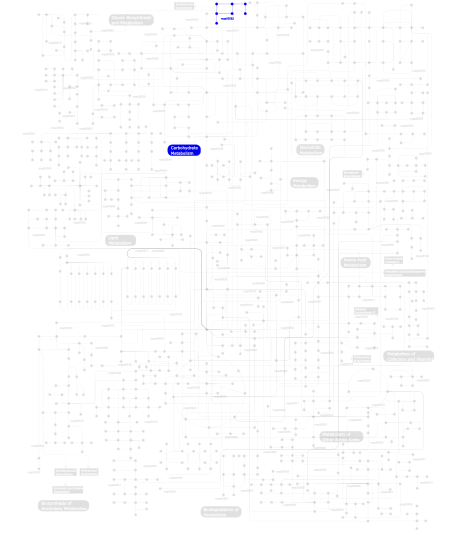The domain within your query sequence starts at position 357 and ends at position 375; the E-value for the 4.1m domain shown below is 5.39e-5.
LGRYLARHKGTYLTNEAKG
4.1mputative band 4.1 homologues' binding motif |
|---|
| SMART accession number: | SM00294 |
|---|---|
| Description: | - |
| Interpro abstract (IPR003585): | The putative band 4.1 homologues' binding motif is found in neurexins, syndecans and glycophorin C intracellular C-termini. Syndecans are cell surface proteoglycans and glycophorin C is a minor sialoglycoprotein in human erythrocyte membranes, which play an important role in regulating the stability of red cells. Syndecan-4, a transmembrane heparan sulphate proteoglycan, is a coreceptor with integrins in cell adhesion. It has been suggested to form a ternary signalling complex with protein kinase Calpha and phosphatidylinositol 4,5-bisphosphate (PIP2). Structural studies have demonstrated that the cytoplasmic domain undergoes a conformational transition and forms a symmetric dimer in the presence of phospholipid activator PIP2, and whose overall structure in solution exhibits a twisted clamp shape having a cavity in the centre of dimeric interface. In addition, it has been observed that the syndecan-4 variable domain interacts, strongly, not only with fatty acyl groups but also the anionic head group of PIP2. These findings indicate that PIP2 promotes oligomerisation of the syndecan-4 cytoplasmic domain for transmembrane signalling and cell-matrix adhesion [ (PUBMED:9582338) (PUBMED:11456484) ]. Some of the proteins in this group are responsible for the molecular basis of the blood group antigens, surface markers on the outside of the red blood cell membrane. Most of these markers are proteins, but some are carbohydrates attached to lipids or proteins [Reid M.E., Lomas-Francis C. The Blood Group Antigen FactsBook Academic Press, London / San Diego, (1997)]. Glycophorin C (PAS-2') belongs to the Gerbich blood group system and is associated with An(a), Dh(A), Ls(a) and Wb antigens. |
| Family alignment: |
There are 7473 4.1m domains in 7460 proteins in SMART's nrdb database.
Click on the following links for more information.
- Evolution (species in which this domain is found)
- Metabolism (metabolic pathways involving proteins which contain this domain)
- Structure (3D structures containing this domain)
- Links (links to other resources describing this domain)





